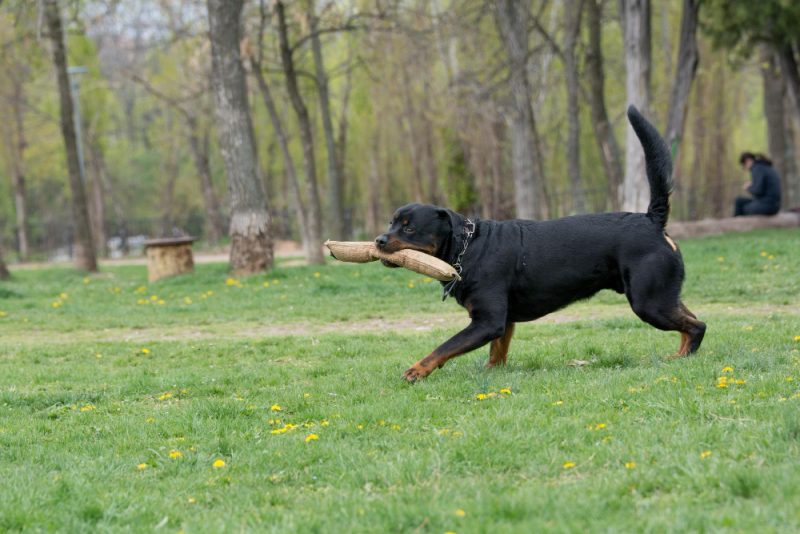
- Home
- Dog Training
- Is Fetch Bad for Dogs? Why Blanket Advice Misses the Mark
Is Fetch Bad for Dogs? Why Blanket Advice Misses the Mark

At Jordan Dog Training, we’ve seen a lot of online chatter about fetch lately — some people are even saying you shouldn’t play it at all. But as is often the case in dog training, there’s more to the story.
While we agree fetch can be misused or overdone, we also know it can be a valuable part of your dog’s enrichment routine — when it’s done thoughtfully and in balance with everything else.
There’s no such thing as a one-size-fits-all rule in dog training. Every dog is different, and that’s exactly why we steer clear of absolutes. Let’s take a more nuanced look at fetch, with insights from our experience as trainers and behaviourists, and supporting guidance from trusted Australian veterinary and welfare sources.
The Benefits of Fetch (When Done Right)
✅ Physical Exercise
Fetch can be a great outlet for energy — especially for high-drive or working breeds like Border Collies, Kelpies, and Malinois. It can support cardiovascular health, weight management, and overall fitness.
👉 Read more: How Much Exercise Does a Puppy Need?
✅ Mental Stimulation
It’s not just about the chase — adding cues like wait, find it, or drop encourages focus, builds impulse control, and keeps the brain ticking. Dogs thrive when they have to think as well as move.
👉 Need ideas? Enrichment Activities for Bored Dogs
✅ Bonding & Engagement
Fetch, when interactive and engaging, strengthens the relationship between dog and guardian. It can become a training opportunity, a way to reinforce cues, and just a fun way to enjoy time together.
👉 See also: How to Raise a Well-Balanced Dog
When Fetch Becomes a Problem
While fetch can be brilliant in moderation, problems can arise when it’s done repetitively, obsessively, or without structure.
⚠️ Repetitive Stress Injuries
Fast-paced chasing, twisting, and stopping can place significant strain on joints — especially in puppies, senior dogs, or those with existing musculoskeletal issues. Playing fetch on concrete or using inappropriate toys (like sticks or small tennis balls) increases the risk.
👉 Learn more: Why We Don’t Recommend Tennis Balls for Dogs
⚠️ Obsessive Behaviour & Hyperarousal
Some dogs become overly fixated on the ball, struggling to relax or engage in other forms of play. This kind of compulsive behaviour often spills over into other areas and can impact quality of life.
👉 Related read: Why Do Dogs Get the Zoomies?
⚠️ Toy Hazards
Sticks and poor-quality toys can splinter, cause mouth injuries, or be swallowed. Opt for dog-safe, appropriately sized fetch toys designed to reduce dental and injury risks.
👉 More info: The Hidden Hazards of Tennis Balls
✅ How to Make Fetch Safer and More Constructive
At Jordan Dog Training, we don’t suggest eliminating fetch altogether. We encourage you to play it better.
1. Use the right equipment
Soft, durable fetch toys only — no sticks, no worn-out tennis balls. Choose a size appropriate for your dog to avoid choking.
2. Watch where you play
Grass or sand is ideal. Avoid hard surfaces like tiles, bitumen or wet decking, which increase the risk of slips or joint trauma.
3. Keep it short and sweet
Overdoing it can lead to mental and physical fatigue. Aim for quality over quantity.
4. Build in structure and variety
Use cues like wait, go, and drop. Ask for a trick or obedience behaviour between throws to keep your dog calm and engaged.
👉 Try this: Should You Use an Automatic Ball Launcher?
👉 And this: Let Them Sniff – Why It Matters
💬 Trainer Tip
💡 “Try hiding the ball behind your back, asking for a trick, and then tossing it — this builds impulse control and makes fetch part of a training game, not just a chase.”
🐾 Got a Puppy?
Puppies under 12 months are still developing, and high-impact activities can affect growing joints. If you’ve got a young pup, stick to shorter games and avoid repetitive fetching. Your vet can advise what’s safe for your pup’s age and breed.
👉 Ready to set your pup up for success? Join our Puppy School
⚕️ When to Check With Your Vet
If your dog has:
- A history of joint, spine or muscular issues
- Difficulty settling after play
- A tendency toward obsessive or high-arousal behaviour
…it’s always a good idea to check in with your vet before adding fetch to their routine. At Jordan Dog Training, we work closely with veterinary professionals and always support a collaborative approach to your dog’s wellbeing.
Need Help Creating a Balanced Routine?
If you’re unsure whether fetch is right for your dog — or you’d like to build a more enriching, structured lifestyle for them — we’d love to help.
👉 Get in touch with our team to book a session with one of our qualified trainers.
Disclaimer:
The information provided in this blog is intended as general guidance and is based on our experience as professional dog trainers and behaviourists. We include references to reputable Australian veterinary and welfare sources where appropriate. This is not veterinary advice and should not replace consultation with a qualified veterinarian. If you have any concerns about your dog’s health, wellbeing, or suitability for certain activities, please speak with your vet.

Justin Jordan
Master Trainer
- In-home behaviour modification consultations
- Puppy schools
- Obedience classes
- Specialist training
- Media enquiries
- Trainer opportunities
- Supplier enquiries
- Guest appearances
















